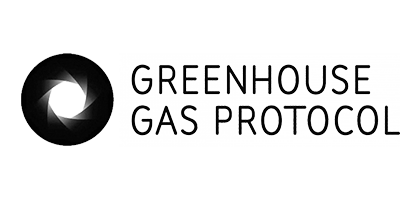Climate change is among the most pressing concerns of the twenty-first century and one which is having an increasingly broad range of impacts. Unchecked it will fundamentally disrupt the world’s ecosystems, with far-reaching consequences for both human beings and the natural environment. Action is needed on a global scale - from every country, government, business, and individual.
Working towards net zero by 2040
Penningtons Manches Cooper has committed to achieving net zero by 2040. Our near-term and long-term greenhouse gas (GHG) emissions reduction targets have been validated by the Science Based Targets Initiative (SBTi), a partnership between CDP, the United Nations Global Compact, the World Resources Institute (WRI) and the World Wide Fund for Nature (WWF). Together, they have developed a globally recognised, science-based methodology for setting corporate decarbonisation targets in line with the Paris Agreement goals of limiting global warming to 1.5°C. Our commitments are to:
- reach net-zero GHG emissions across the value chain by 2040;
- reduce absolute scope 1 and 2 GHG emissions by 100% by 2030 from a base year of 2022;
- reduce scope 3 GHG emissions by 50% by 2030 from a base year of 2022;
- reduce scope 3 GHG emissions by 90% by 2040 from a base year of 2022.
Our operations
Our environmental management system is certified to ISO 14001:2015, the cross-sector international standard. We undertake an analysis of our operational GHG emissions annually and have held the Planet Mark accreditation since 2019. We use the Greenhouse Gas Protocol as a framework for measuring and reporting our emissions.
Since 2019, we have seen positive reductions in our emissions year on year. The pandemic had a demonstrable impact on emissions owing to travel restrictions and working from home. During this time new ways of working and engaging with our clients became commonplace and these continue to play an important role in how we operate now.
Climate mitigation and biodiversity
Our position on carbon offsetting is clear - it is not a solution to the climate crisis. While we focus our core efforts on making reductions across our full value-chain, we are, however, looking to support initiatives to enhance local biodiversity on an annual basis. Our most recent projects include supporting tree planting grants with the Royal Forestry Society and helping to restore native oysters in the Solent. The goal remains to reduce our underlying emissions beyond the level consistent with 1.5 degrees of warming.
Key features of our net zero transition plan include:
- Sustainable procurement and supply chain engagement - we are taking a strategic approach to engaging with our suppliers, with the aim of reducing the emissions linked to the provision of goods and services to the firm. Sustainability has become a key factor in our procurement decision-making in order to drive down emissions.
- Firmwide energy and resource efficiency initiatives – we have launched a comprehensive programme of work to address inefficiency and waste across the business. This covers everything from energy consumption and use of natural resources to identifying the changes needed to the on-site physical infrastructure, which will allow us to adopt more sustainable practices around waste management and water consumption.
- Sustainability committees – our four committees concentrating on key strands of our sustainability strategy will be key in evolving and advocating the operational changes we need to make to progress towards our targets. They represent a vast spread of roles, locations and teams within the firm and have achieved significant results in engaging and raising awareness.
- Sustainable business travel and commuting – we have a good understanding of our travel profile, both business and commuting, but tackling emissions in each of these areas will be distinct challenges in themselves.
Our strategic focus
We understand that our response to climate change over the next decade will define our future and are pursuing a varied programme designed to achieve best environmental practice. In addition, we are already working with and supporting our clients as they navigate the risks and opportunities posed by climate change. More about our work with clients can be found here.
In this section
Sustainability news
Latest news
Penningtons Manches Cooper signs the Greener Litigation Pledge
Latest news
Penningtons Manches Cooper recognised for sustainability and hybrid working in Early Career Awards

 Read more news
Read more news







